Quantifying so-called quantum magic is essential for realizing a universal quantum computer. A proposed “magic meter” could achieve such a goal.
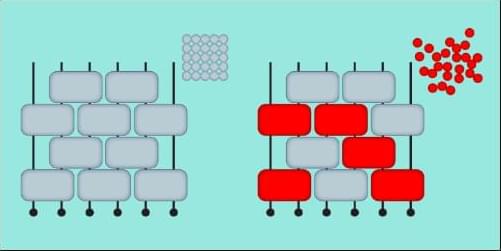

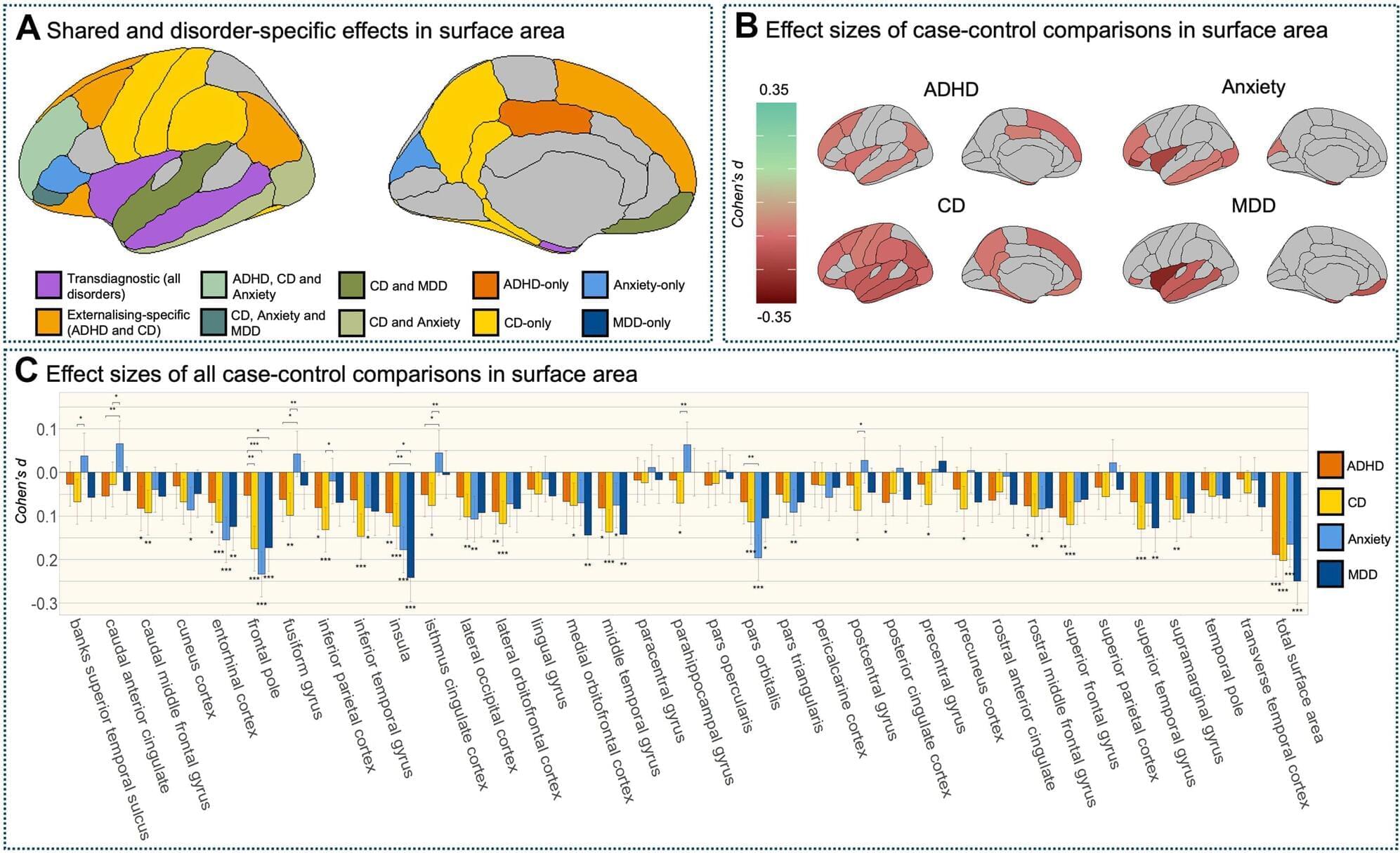
An international study—the largest of its kind—has uncovered similar structural changes in the brains of young people diagnosed with anxiety disorders, depression, ADHD and conduct disorder, offering new insights into the biological roots of mental health conditions in children and young people.
Led by Dr. Sophie Townend, a researcher in the Department of Psychology at the University of Bath, the study, published today in the journal Biological Psychiatry, analyzed brain scans from almost 9,000 children and adolescents—around half with a diagnosed mental health condition—to identify both shared and disorder-specific alterations in brain structure across four of the most common psychiatric disorders in childhood and adolescence.
Among several key findings, the researchers identified common brain changes across all four disorders—notably, a reduced surface area in regions critical for processing emotions, responding to threats and maintaining awareness of bodily states.
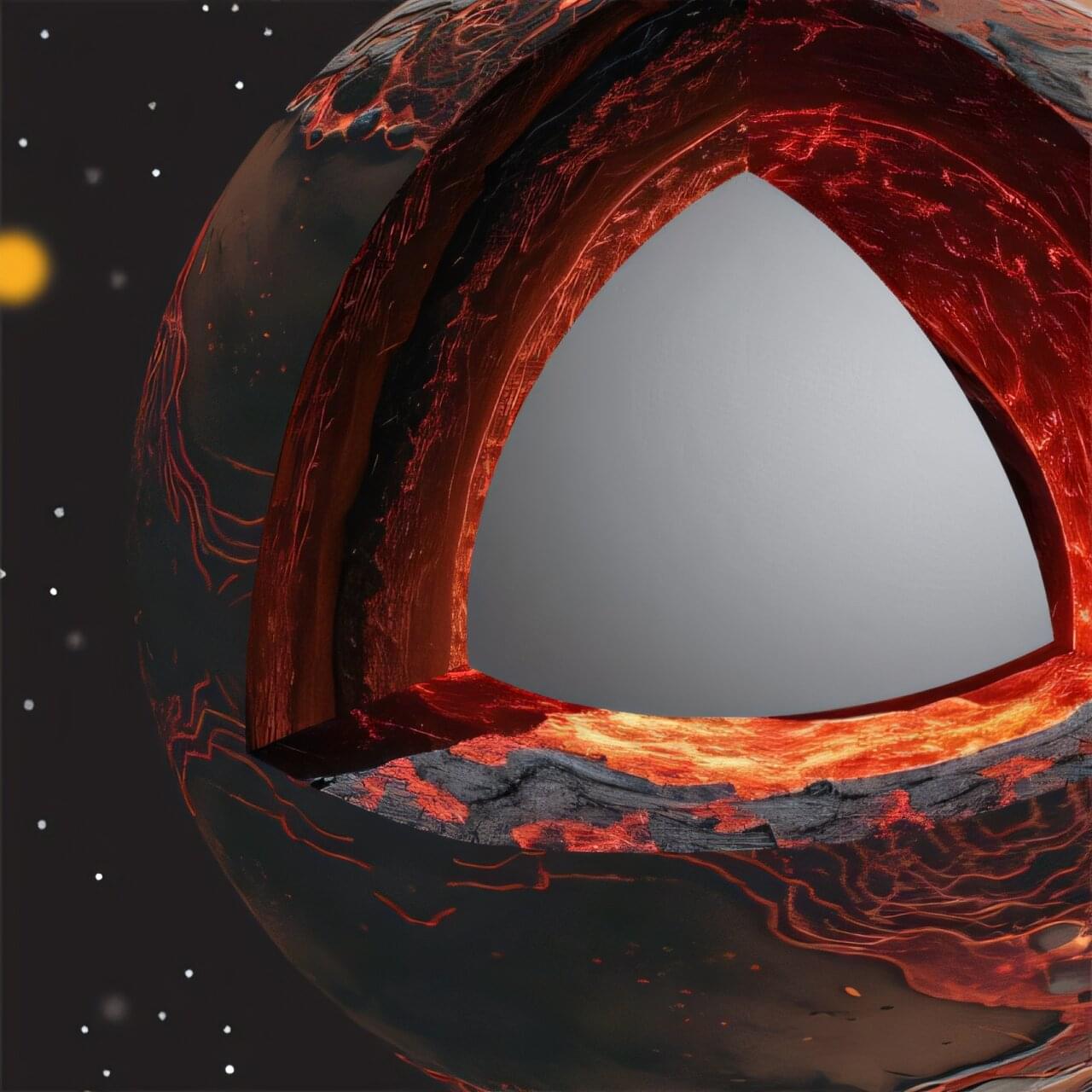
For decades, scientists have been baffled by two enormous, enigmatic structures buried deep inside Earth with features so vast and unusual that they defy conventional models of planetary evolution.
Now, a study published in Nature Geoscience by Rutgers geodynamicist Yoshinori Miyazaki in combination with collaborators offers a striking new explanation for these anomalies and their role in shaping Earth’s ability to support life.
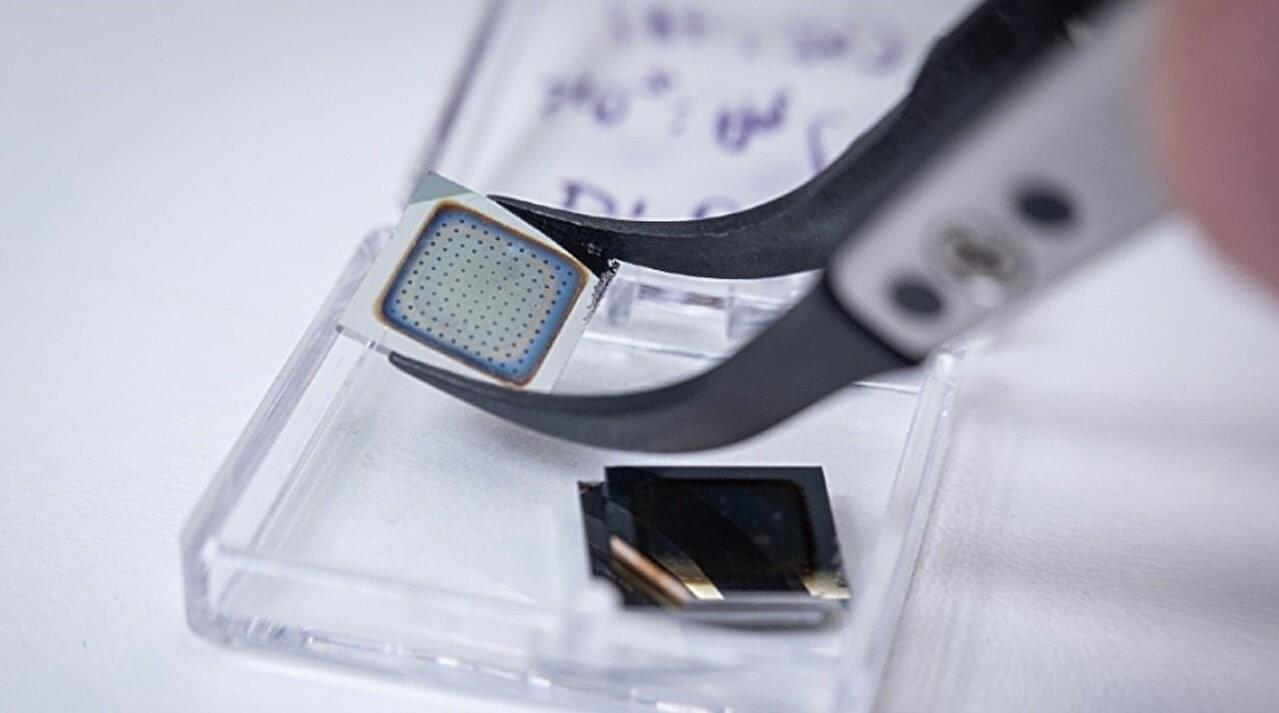
Robots that can sense and respond to the world like humans may soon be a reality as scientists have created an artificial neuron capable of mimicking different parts of the brain.
Artificial neurons—tiny electronic circuits that replicate the way brain cells communicate—lie at the heart of neuromorphic computing, a field aiming to bring human-like intelligence to machines.
Despite rapid progress, today’s artificial neurons can only perform fixed tasks, each serving a narrow role. Thousands must be combined to replicate simple brain functions—a costly, energy-hungry process compared with the brain’s effortless adaptability.
Bipedal (two-legged) robots are sophisticated machines, but they are not the most graceful when things go wrong. A simple push, fall or an obstacle can send them crashing to the ground, often resulting in expensive damage to sensitive components such as cameras.
To solve this problem, researchers at Disney Research in Zurich, Switzerland, have developed a new system that ensures that when gravity brings a robot tumbling down, it falls softly and gracefully.
Existing techniques to protect robots when they topple over do not offer control or effectively minimize impact. Actuators might freeze, causing the robot to stiffen and hit the ground hard, or they might go limp, leaving the robot to tumble chaotically. Other methods rely on pre-programmed falling motions, but these only work for slow movements or simple falls.
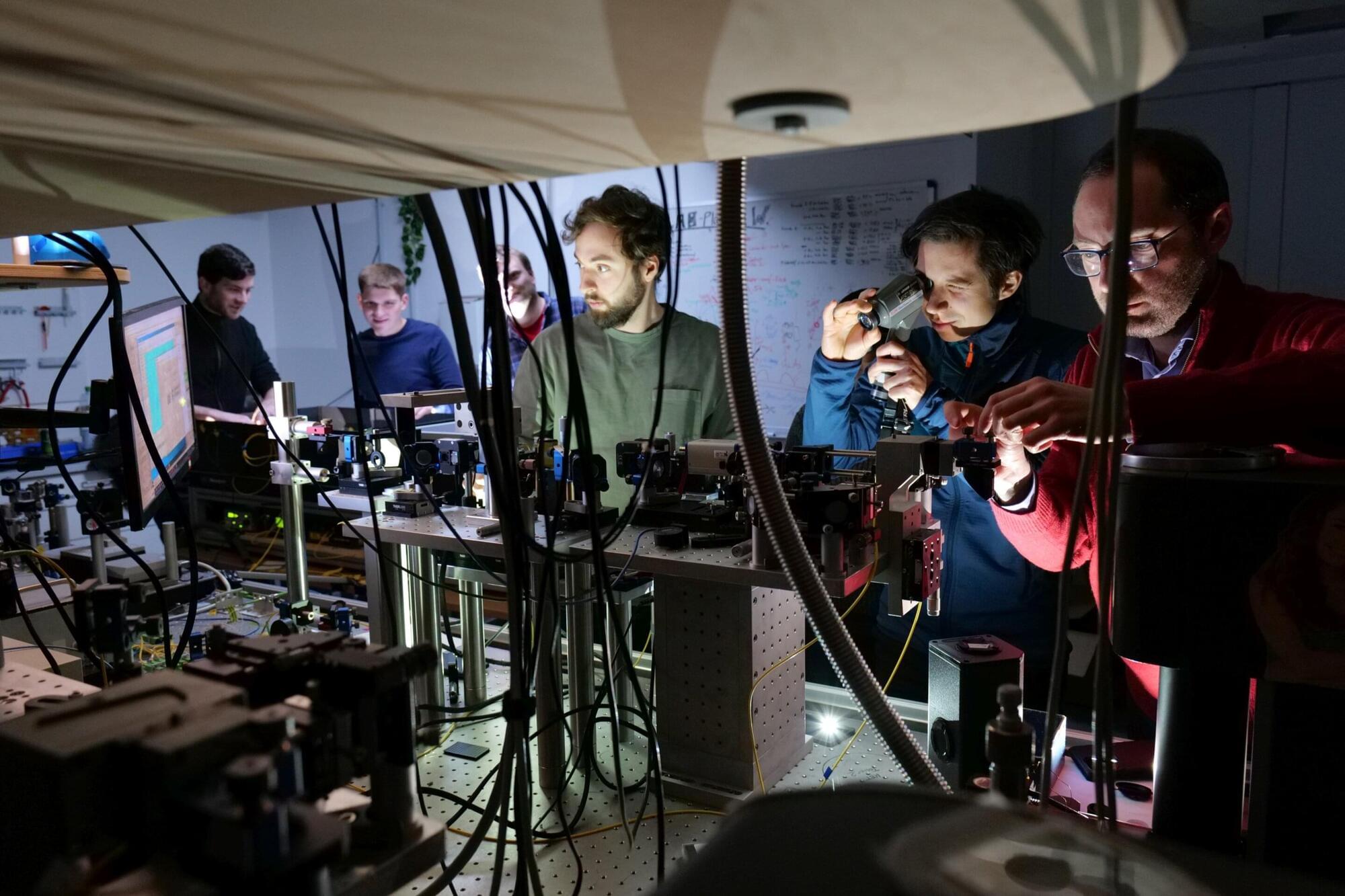
Everyday life on the internet is insecure. Hackers can break into bank accounts or steal digital identities. Driven by AI, attacks are becoming increasingly sophisticated. Quantum cryptography promises more effective protection. It makes communication secure against eavesdropping by relying on the laws of quantum physics. However, the path toward a quantum internet is still fraught with technical hurdles.
Researchers at the Institute of Semiconductor Optics and Functional Interfaces (IHFG) at the University of Stuttgart have now made a decisive breakthrough in one of the most technically challenging components, the quantum repeater. They report their results in Nature Communications.
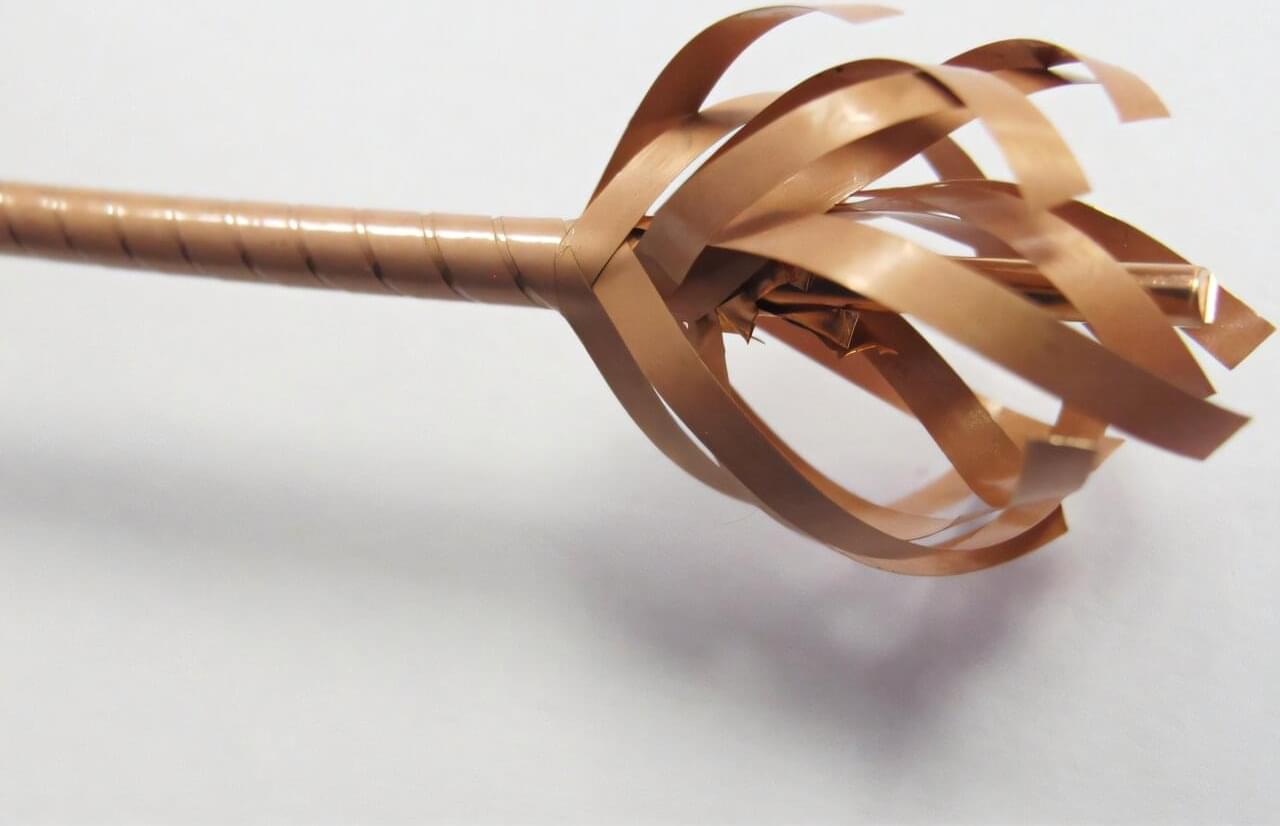
When current flows through a wire, it doesn’t always have a perfect path. Tiny defects within the wire mean current must travel a more circuitous route, a problem for engineers and manufacturers seeking reliable equipment.
Through a partnership with industry, researchers at the FAMU-FSU College of Engineering and Florida State University’s Center for Advanced Power Systems and the National High Magnetic Field Laboratory have supported the development of a design that uses multiple strands of superconducting tape to create a cable, minimizing the chance of failure from defective spots within a wire. When current encounters a defect in one wire, it jumps to a neighboring wire to continue moving.
The research, which is published in Superconductor Science and Technology, helps to solve engineering and manufacturing challenges for manufacturers and could lead to more efficient and less expensive wires for electric motors and many other superconducting coil applications.
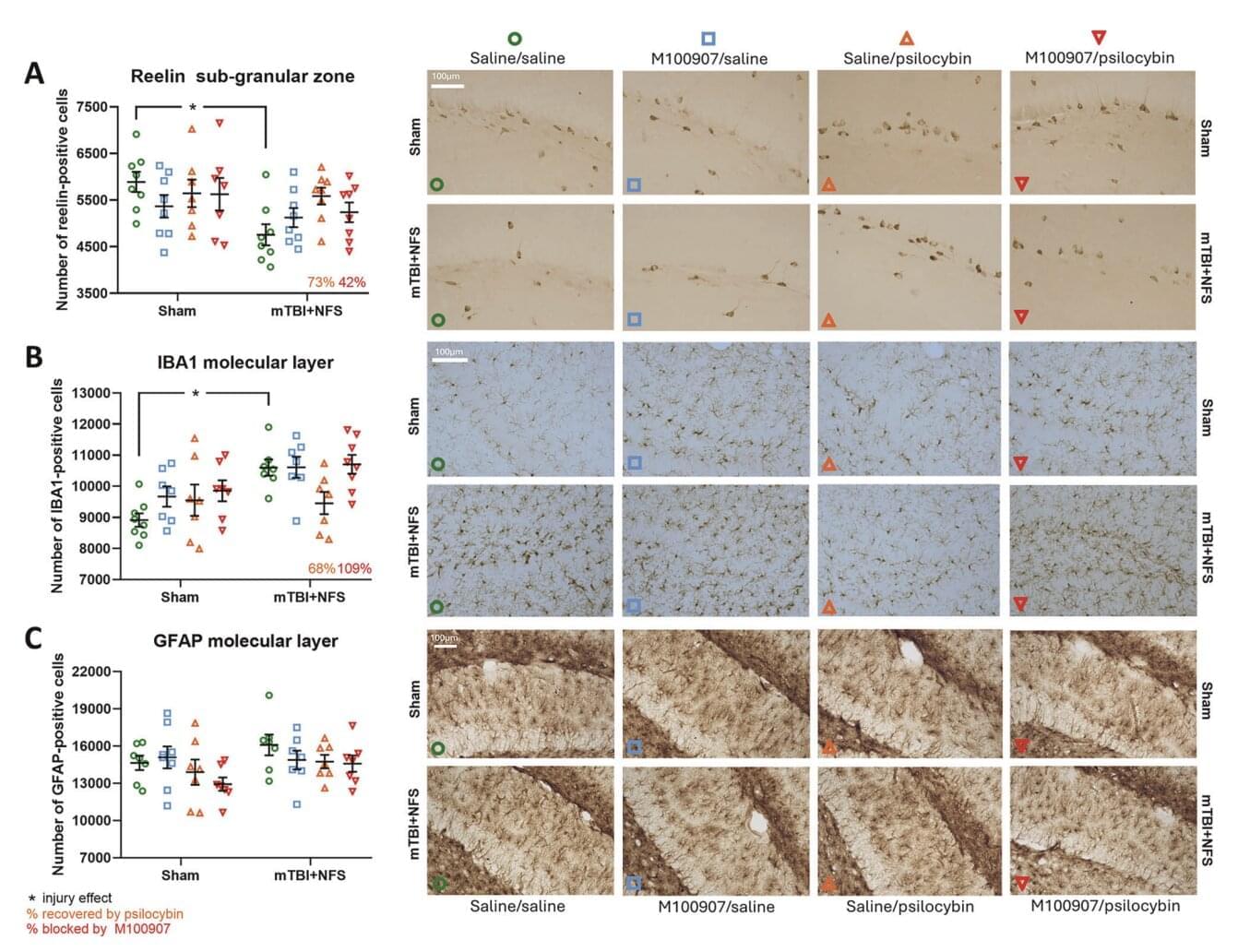
The term intimate partner violence (IPV) refers to physical, sexual or psychological abuse perpetrated by an individual on their romantic partner or spouse. Victims of IPV who are violently attacked and physically abused on a regular basis can sometimes present injuries that have lasting consequences on their mood, mental processes and behavior.
Common types of injuries observed in IPV victims who are periodically attacked physically include mild traumatic brain injuries (mTBI) and disruptions in the flow of blood or oxygen to the brain emerging from non-fatal strangulation (NFS). Both these have been linked to inflammation in the brain and a hindered ability to form new connections between neurons or change older connections (i.e., neuroplasticity).
Researchers at Monash University, Vancouver Island University and University of Victoria recently carried out a study involving rats aimed at assessing the potential of the psychedelic compound psilocybin for reversing the chronic effects of IPV-related brain injuries. Their findings, published in Molecular Psychiatry, suggest that psilocybin could in fact reduce inflammation and anxiety, improve memory and facilitate learning following brain injuries caused by repeated physical trauma.

Yi Du and colleagues from the Chinese Academy of Sciences published an article in the open access journal PLOS Biology detailing their findings about a new way our bodies naturally respond to music. Given a steady beat, our eyes blink in synchrony.
The neurological process that helps us move with the music is known as auditory-motor synchronization. This describes the way you tap your foot along with the radio or bob your head at a concert, or why some runners listen to songs with a specific number of beats per minute to keep pace. However, this new study found that we don’t just respond to music with these gestures, we can choose to start or stop. Some of our most involuntary movements are affected as well.
In over 100 participants, the researchers measured spontaneous blinks, the ones our eyes do without us usually even noticing. The researchers treated the participants to Western classical music, selecting songs that provided an even tempo. Not only did the participants’ blinks begin to sync up with the music, but their brainwaves also aligned.
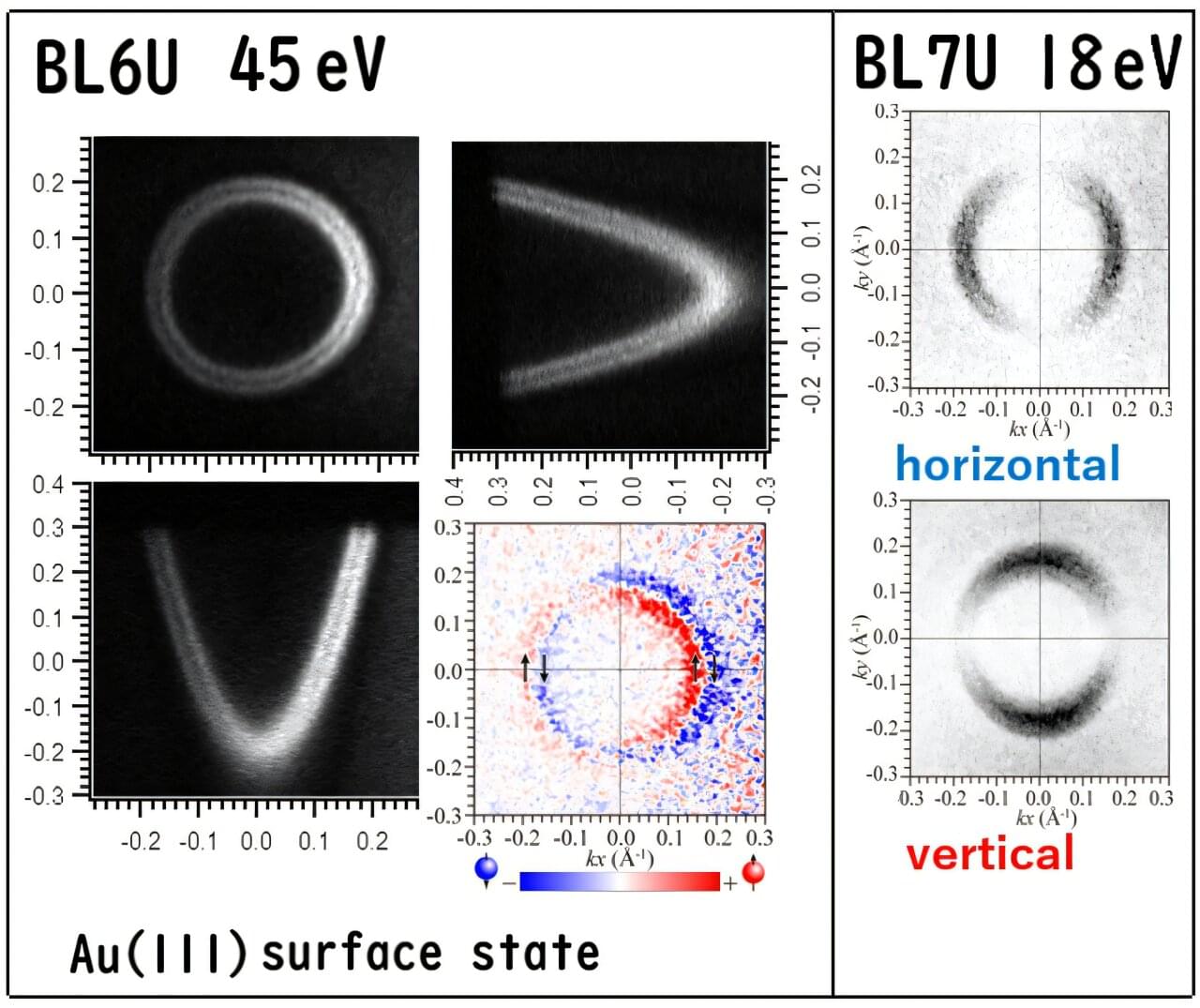
Researchers at the Institute for Molecular Science (IMS) have definitively resolved a two-decade-long controversy regarding the direction of electron spin on the surface of gold.
Using a state-of-the-art Photoelectron Momentum Microscope (PMM) at the UVSOR synchrotron facility, the team captured complete two-dimensional snapshots of the Au(111) Shockley surface state, mapping both the electron’s spin (its intrinsic magnetic property) and its orbital shape in a projection-based measurement. The work is published in the Journal of the Physical Society of Japan.
The experiment unambiguously confirmed the Rashba effect—where an electron’s motion is coupled to its spin—by assigning a clockwise (cw) spin texture to the outer electron band and a counterclockwise (ccw) texture to the inner band when viewed from the vacuum side.